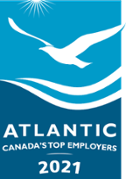The Institute of Biomedical Engineering at the University of New Brunswick (UNB) invites applications for a Tier 1 NSERC Canada Research Chair (CRC) in Assistive Mobility Robotics. As our population ages, maintaining and restoring mobility are critical to enable community connectedness and quality of life for many members of our community. This area is accordingly a priority area of research for UNB, New Brunswick, and Canada.
Maintaining and restoring mobility is a multi-faceted problem that requires a holistic, integrated team to provide the best impact across a range of needs. One important aspect is providing assistive and adaptive technologies that can assist various aspects of mobility, ranging from prevention of injuries to rehabilitation after injury, to assistance throughout life. As robotics become more ubiquitous in our lives, robotics and other technologies that comfortably integrate with our lifestyles have increasing potential to significantly impact our quality of life. Priority areas of research within this field of assistive technologies may include the design and evaluation of soft/modular robotics, smart textiles, or flexible actuators; exoskeletons; wearable technologies; mechatronics; or other assistive and adaptive technologies related to interventions that assist with mobility.
The successful candidate will be appointed at the rank of Professor or Associate Professor with Tenure, if qualifications and experience warrant, within the Mechanical Engineering department of the Faculty of Engineering. Salary will be commensurate with qualifications and experience. Per UNB requirements, the successful candidate will hold a PhD or equivalent in an Engineering or related discipline. UNB will nominate the selected candidate for the Tier 1 CRC in Assistive Mobility Robotics. The offer of an appointment is conditional upon the candidate being awarded a Canada Research Chair. The anticipated start date of the appointment is January 1, 2024, or as negotiated.
Tier 1 chairs are for outstanding researchers acknowledged by their peers as world leaders in their fields. The successful candidate will bring a record of leadership in multidisciplinary and collaborative research achievements in assistive mobility robotics that shows global impact. The assessment of candidates will be based on research excellence as reflected in the quality and impact of Declaration on Research Assessment (DORA) outputs, previous successes securing external research funding, demonstrated impact in knowledge mobilization, leadership within the international community, and other evidence of impact. The DORA outputs include, but are not limited to, published journal articles, article preprints, datasets, software, protocols, well-trained researchers, societal outcomes, and policy changes resulting from research. In addition, the successful candidate also must show evidence of successful teaching, including mentorship, and possess the potential to attract, to develop, and to retain excellent trainees, students, and future researchers.
UNB is committed to fostering diversity within our community and developing an inclusive workplace that reflects the richness of the broader community that we serve. This position will uphold UNB's commitment to increasing the representation of under-represented groups among its chairholders. Therefore, only applicants who self-identify as women and/or as members of racialized groups (visible minorities) will be considered for this opportunity. Please note that the category of "women" includes people who identify as cisgender women, transgender women, transgender men, two-spirit, and non-binary. We encourage those with intersecting identities to apply (for example, women who also identify as Indigenous). Intersectional identities include Indigenous peoples, persons with disabilities, and persons of any sexual orientation, gender identityy, or gender expression.
UNB is situated on the unceded territory of the Wolastoqiyik and Mik'maq peoples along the banks of the beautiful and bountiful Wolastoq river, a region recognized worldwide for its natural beauty. UNB is a small comprehensive university with a long history of excellence in teaching and research and large emphasis on biomedical engineering. UNB's Institute of Biomedical Engineering (IBME) is world renowned for their accomplishments in myoelectric prosthesis control, and over the last thirty years the university has enjoyed substantial investment and growth in the broader rehabilitation sector. IBME recently built the Centre for Adaptive Rehabilitation Engineering (CARE) - a state of the art facility that blends assistive robotics, virtual reality, and activities of daily living. IBME is a small collaborative team of core and affiliated faculty members that have historically come from a variety of departments including Electrical and Computer Engineering, Mechanical Engineering, and Kinesiology. We typically supervise 20-30 graduate students and have graduated over 160 graduate students, a large percentage of whom are now leading Canada's biomedical research at universities across the country. The growing Department of Mechanical Engineering currently has 17 faculty members and hosts 300-400 undergraduate students and 80-100 graduate students. Affiliated faculty within the department work closely with the team at IBME through research and course options such as mechatronics and biomedical engineering. The Faculty of Engineering is currently in a phase of growth that complements these programs.
IBME and the Faculty of Engineering are both located on UNB's Fredericton campus - the capital city of New Brunswick - providing the amenities of a large city and the charm of a small town. Fredericton offers a rare opportunity for academics to do world-class research in a supportive, beautiful environment. Faculty can afford to live downtown or in forested rural communities that enjoy only a 15-minute commute, making it easy to engage in research, outdoor activities, and social activities. An extensive network of multiuse trails and a vibrant network of community and multicultural organizations provide the opportunity for a balanced life in which both research and community engagement thrive. Rated Canada's #2 city to live in, Fredericton's affordable tech-savvy, nature-infused environment is the ideal place to live and has played a significant role in attracting such a grounded, team-oriented group of world-leading researchers.
UNB ensures that employment opportunities are accessible to all applicants. To request accommodations at any stage in the recruitment and hiring process, please contact UNB's Recruitment & Employee Experience Specialist at 506-453-4648 or people@unb.ca.
UNB recognizes the legitimate impact that leaves (e.g., parental, illness) can have on a candidate's record of research achievement. We recognize that career paths are not always linear, particularly for people from marginalized groups, and we encourage applicants to explain the impact any career interruptions may have had on their research history. Leaves will be taken into careful consideration during the assessment process.
Please consult the Canada Research Chairs website for full program information, including further details on eligibility criteria.
Applicants are requested to supply a current CV including a list of DORA outputs, statements describing previous performance in research, teaching and supervision, and a statement identifying strengths and experiences related to equity, diversity, and inclusion in their current and previous institutional environments. All qualified people are encouraged to apply; however, in accordance with Canadian Immigration requirements, please specify if you are legally entitled to work in Canada. Names and contact details of at least three references should also be sent. Applications should be sent to:
Institute of Biomedical Engineering
University of New Brunswick
C/o Christine Ritchie
25 Dineen Drive, PO Box 4400
Fredericton, New Brunswick
Canada E3B 5A3
E-mail: IBME-CRC@unb.ca
The review of applications will begin 15 September 2022 and will continue until the position is filled.
Short-listed candidates will be required to provide satisfactory proof of credentials including appropriately certified translations of credentials into English, as applicable.
The University of New Brunswick is committed to fostering diversity within our community and developing an inclusive workplace that reflects the richness of the broader community that we serve. The University welcomes and encourages applications from all candidates who will help us achieve our goals, including women, visible minorities, Indigenous peoples, persons with disabilities, persons of any sexual orientation, gender identity or gender expression. We recognize that career paths are not always linear, particularly for individuals from marginalized groups, and we encourage applicants to explain the impact any career interruptions may have had on their research history. Preference will be given to Canadian citizens and permanent residents of Canada.


